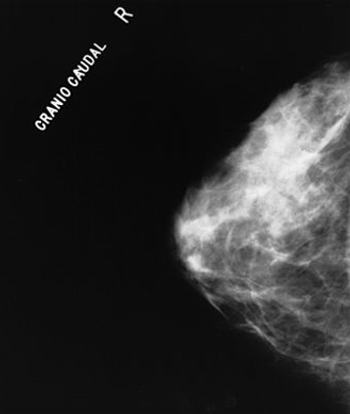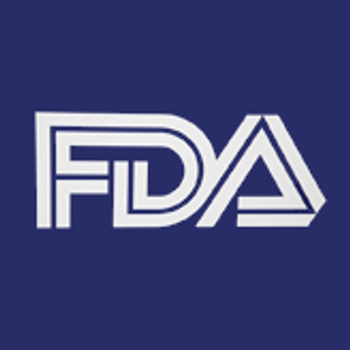
The FDA has approved the first single-dose intravenous NK1 receptor antagonist, fosaprepitant dimeglumine (Emend), for the treatment of nausea and vomiting that can accompany the use of moderately and highly emetogenic chemotherapy.

Your AI-Trained Oncology Knowledge Connection!


The FDA has approved the first single-dose intravenous NK1 receptor antagonist, fosaprepitant dimeglumine (Emend), for the treatment of nausea and vomiting that can accompany the use of moderately and highly emetogenic chemotherapy.

Despite clinical trial evidence and recommendations that certain older breast cancer patients can forego radiation therapy after lumpectomy, most older patients continue to receive radiation therapy, according to a new study.

Women younger than 40 may be more likely to frequent indoor tanning, and those who do are between two and six times more likely to develop melanoma, according to a new study.

Nanoliposomal irinotecan combined with fluorouracil/leucovorin improved overall survival in metastatic pancreatic cancer patients who have already been treated with gemcitabine.

An observational study found that adjuvant chemotherapy improves overall survival in patients with locally advanced bladder cancer.

More than 15% of men and women over the age of 65 may have received breast or prostate cancer screening not recommended by current guidelines.

Everolimus improved progression-free survival by 6 to 8 months compared with placebo in patients with advanced neuroendocrine tumors of the gastrointestinal tract.

A published statement by ASCO lays out concerns about the ways in which clinical pathways, a system designed to improve the quality of care cancer patients receive, are being utilized within the US healthcare system.

Mice fed sugar at levels comparable to those in a typical Western diet had greater tumor growth and metastasis compared to mice fed a starch-based, no-sugar diet.

Adolescent girls who live in predominantly Hispanic and high poverty communities are more likely to have had at least one HPV vaccine dose compared to girls in low poverty communities and those with different ethnic make up.

Progression-free survival in advanced renal cell carcinoma patients treated with cabozantinib was nearly doubled compared with those treated with everolimus, according to data from the METEOR trial.

Men who take aspirin regularly may have a lower risk of dying from prostate cancer, according to results of a large observational study.

Prostate cancer patients who have a more heterogeneous set of detectable circulating tumor cells are more likely to develop resistance to anti-androgen therapy, according to the results of a new study.

Paid sick leave benefits could alleviate some of the financial burden patients with colorectal cancer incur during treatment and boost their job retention.

Younger women who received triptorelin to suppress ovarian function prior to chemotherapy had a greater chance of preserving fertility.

Could a new imaging technique that is able to detect the distant spread of melanoma to the lymph nodes help patients avoid potentially risky surgery?

Men with prostate cancer who carry variants in the SLCO2B1 gene have shorter time to progression and overall survival.

T-DM1 improved survival in women with HER2-positive breast cancer, even after treatment with two or more other HER2-targeted therapies including trastuzumab and lapatinib.

The combination of radiation therapy plus cetuximab had higher rates of acute toxicity among patients with locally advanced squamous cell carcinoma of the head and neck compared with radiation therapy plus cisplatin.

MRI can detect a larger tumor burden than detected by mammography alone, potentially changing treatment, according to a recently published study.

Among local treatment options for early breast cancer patients, mastectomy plus reconstruction has the highest rate of complications and is highest in cost.

The addition of denosumab to adjuvant hormonal therapy in postmenopausal breast cancer patients improves disease-free survival compared with placebo.

Survival of women initially diagnosed with stage IV breast cancer has improved in the last 20 years, according to results of a retrospective cohort study.

Cancer survivors treated with anthracycline-based chemotherapies exhibited poorer performance of certain cognitive skills.

Men diagnosed with prostate cancer who opt for active surveillance/watchful waiting rather than active treatment may not be receiving quality monitoring of their disease.

Women who previously had a false-positive mammogram or biopsy are at higher risk for developing breast cancer for at least 10 years, according to a new study.

Following the USPSTF recommendation in 2012 against routine PSA screening, rates of screening and the incidence of early-stage prostate cancer have both declined.

A program implemented in New York City successfully increased colorectal cancer screening rates and diminished racial and ethnic disparities in screening.

The FDA has approved the anti–PD-1 immunotherapy nivolumab (Opdivo) for the treatment of metastatic renal cell carcinoma.

Researchers have developed a blood-based assay that detects ESR1 mutations in circulating tumor DNA and could predict treatment failure in breast cancer patients.